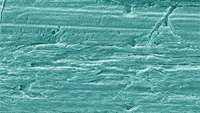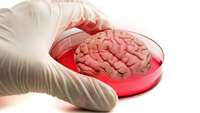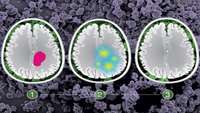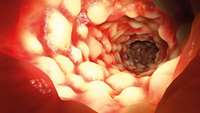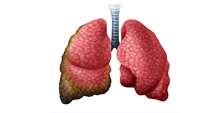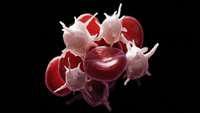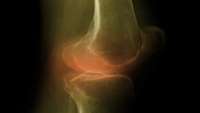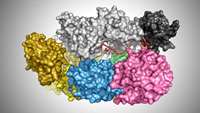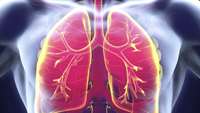Organoid profiling identifies treatments for pancreatic cancer
Patient-derived organoids, hollow spheres of cells cultured from tumors, can quickly and accurately predict how patients with pancreatic cancer respond to a variety of treatments, facilitating a precision-medicine approach to the deadly disease.
Tooth enamel that regrows? Researcher says revolutionary gel could make it possible
Dental cavities are the leading source of disability and pain: They affect 35 percent of the worlds population, with an economic impact in the hundreds of billions of dollars. Still, the methods for treating cavities and tooth enamel loss generally involve pain, cost—and drills.
Researchers create advanced brain organoid to model strokes, screen drugs
Wake Forest Institute for Regenerative Medicine (WFIRM) scientists have developed a 3-D brain organoid that could have potential applications in drug discovery and disease modeling.
A targeted approach to treating glioma
Glioma, a type of brain cancer, is normally treated by removing as much of the tumor as possible, followed by radiation or chemotherapy. With this treatment, patients survive an average of about 10 years, but the tumors inevitably grow back.
Stem cell transplants to be used in treating Crohns disease
A clinical trial has begun which will use stem cell transplants to grow a new immune system for people with untreatable Crohns disease - a painful and chronic intestinal disease which affects at least 115,000 people in the UK.
UC San Diego Research Team Awarded Funds to Investigate Stem Cell-based Therapy for Pulmonary Fibrosis
A team of researchers at the University of California San Diego School of Medicine was recently granted $865,282 from the California Institute for Regenerative Medicine (CIRM) to investigate a stem cell therapy for pulmonary fibrosis.
Scientists Identify New Way to Expand Stem Cells for Transplants
Researchers from the Stowers Institute for Medical Research and collaborators have identified a way to expand blood-forming, adult stem cells from human umbilical cord blood (hUCB).
Can Arthritic Dogs Benefit From Stem Cell Therapy?
If dogs with arthritis can gain benefit from stem cell injections, maybe people can, too.
How to make the gene-editing tool CRISPR work even better
Among the most significant scientific advances in recent years are the discovery and development of new ways to genetically modify living things using a fast and affordable technology called CRISPR.
A single-cell atlas of the airway epithelium reveals the CFTR-rich pulmonary ionocyte
The functions of epithelial tissues are dictated by the types, abundance and distribution of the differentiated cells they contain. Attempts to restore tissue function after damage require knowledge of how physiological tasks are distributed among cell types, and how cell states vary between homeostasis, injury–repair and disease. In the conducting airway, a heterogeneous basal cell population gives rise to specialized luminal cells that perform mucociliary clearance1.



